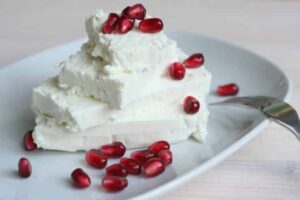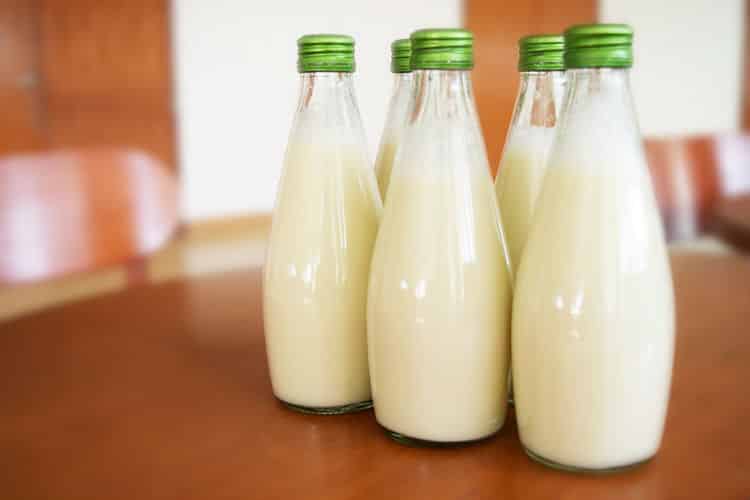For some individuals, it can be challenging to consume enough milk daily to meet recommended levels due to taste or texture preferences.
Calcium from dairy products is essential during growth periods, pregnancy, breastfeeding, and throughout life. Added vitamin D supports the intestinal absorption of calcium and is necessary for its effective utilization. Milk contains 15 nutrients that contribute to bone health.
About two-thirds of the calcium in our diet comes from milk and dairy products. This is why it is recommended that expectant mothers consume 3 to 4 servings of dairy products per day and continue this intake while breastfeeding.
Even when dairy products are mixed with other foods, heated, or cooked, they retain their calcium nutritional value.
Dietary Sources of Calcium
Many people are unable to drink milk but can eat cheese and yogurt. You should know that the best dietary sources of calcium (more than 275 mg) in a diet are:
- Milk
- Enriched soy drinks
- Tofu (rich in calcium sulphate)
- Plain yogurt
- Whole sesame seeds

If you look at sources with more than 165 mg, we can find cheeses (mozzarella, cheddar, parmesan, gouda, feta), flavoured yogurt, sardines and salmon.
Sources with lower levels of calcium (more than 55mg) include ricotta, cottage cheese, broccoli, oranges, scallops, cooked oysters, almonds and sunflower seeds.
As an example, to get the same amount of calcium as in an 8oz glass of milk, you need to eat 1 cup of almonds or 2 cups of broccoli.
Advice to Increase your Daily Consumption of Dairy Products
To help you incorporate enough dairy into your diet during pregnancy and beyond, even if you’re not fond of the taste of milk, I’d like to share some milkshake recipes. These can be enjoyed as drinks or frozen into popsicles. Additionally, cold treats can help alleviate nausea during pregnancy.

If the taste of milk is a concern, a simple tip is to drink it through a straw, which can reduce the flavor since the milk has less direct contact with your taste buds.
These recipes can be used daily as needed, and since they are homemade, you can be confident in their nutritional value.
Suitable for all ages, these recipes can also be a fun activity if you have children, who will enjoy these homemade treats. It’s a great family activity and a tasty snack to share!
All these recipes make 2 portions. You can always double or triple them if you want.
Don’t forget – if you want to add tofu (which doesn’t have a taste) or other calcium sources mentioned above, you can adapt these recipes.
Looking for inspiration? Check this out : Milkshake Recipes to Make into Popsicles – Marie Fortier & Prenato
Enjoy your tasting!
Marie Fortier
The Baby Expert


